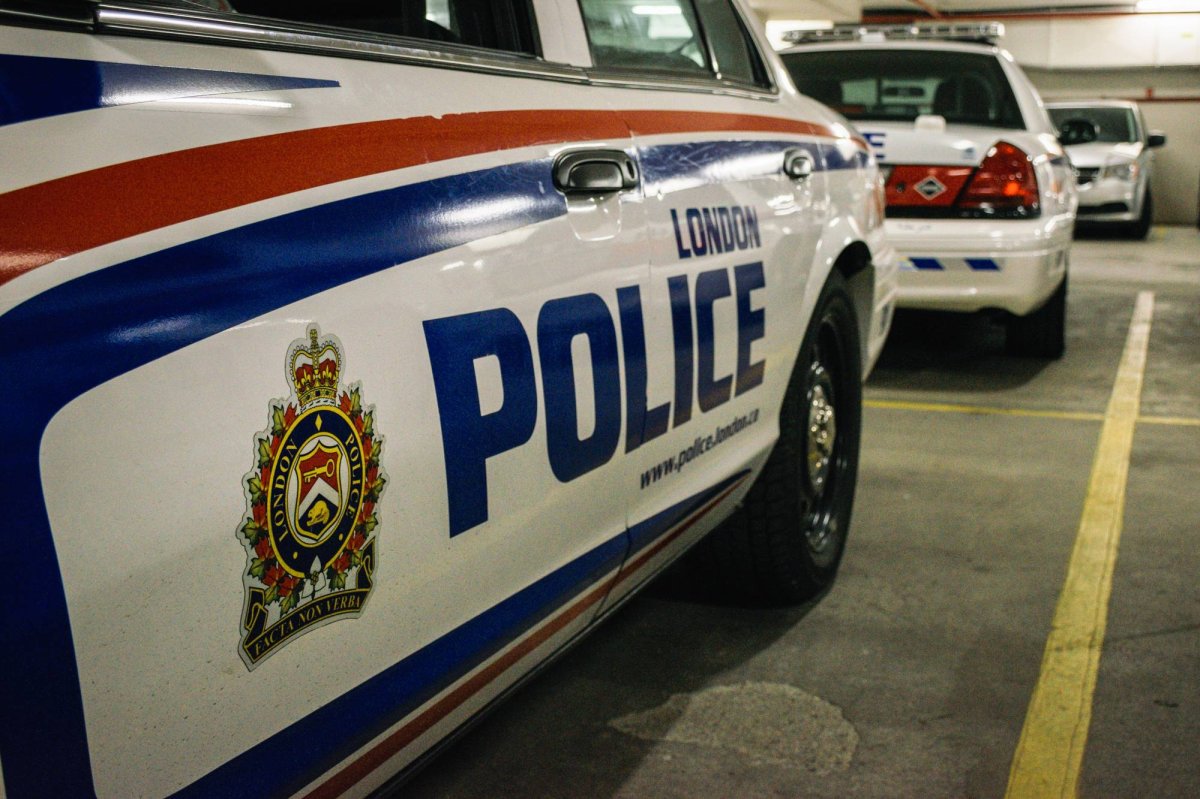The London Police Services Board (LPSB) is launching a community survey and is proposing the creation of two community advisory committees as part of its ongoing anti-racism efforts.

The survey is available online until the end of September. The survey also includes additional information on the proposed advisory committees, which would focus on anti-racism and on mental health and addictions.
In a release on Monday, the board says the actions follow “an internal strategy session to discuss the impacts of racism in our community” on July 16 as well as several weeks of engagement and consultation “throughout the community.”
The announcement comes days before what’s expected to be a jam-packed September board meeting.
The LPSB has previously stated that the Sept. 17 meeting will include an update on the dozen anti-racism recommendations from board chair Dr. Javeed Sukhera that were approved at the June 18 meeting. An update is also anticipated from the London Police Service on its controversial use of the province’s COVID-19 database.
- RCMP arrests alleged hitmen accused of killing B.C. Sikh leader
- Fall COVID-19 vaccine guidelines are out. Here’s what NACI recommends
- Some 2019 candidates ‘appeared willing’ to engage with foreign interference: Hogue inquiry
- Thousands of Canada’s rail workers have a strike mandate. What happens now?
The survey and the meeting also follow a second instance of a noose being found in a forested area of the city.
Officials say they were contacted by a citizen who found a rope tied as a noose attached to a tree branch along the Thames River in Meadowlilly Woods just before 11:15 a.m. Saturday.
It was determined the noose had grown into the tree bark, which police believe suggests it’s been there for quite some time, likely preceding a similar case in Warbler Woods reported Sept. 7, where a rope tied as a noose was also found. The Sept. 7 incident later prompted an apology from the chief of police, who said that the initial police response was not as “swift as I expect, and not what the community deserves.”
“I am thankful that this matter was brought to my attention so it could be given the appropriate attention, and apologize for our delayed response,” he said in a statement on Sept. 8.
Renewed and sustained efforts towards addressing systemic racism gained traction in late May following the death of George Floyd, including a June 6 rally in London that drew crowds of 10,000.
Floyd, a Black man who was in handcuffs, died May 25 after Derek Chauvin pressed his knee against Floyd’s neck as Floyd said he couldn’t breathe and became motionless. Chauvin is charged with second-degree murder, third-degree murder and manslaughter while three others are charged with aiding and abetting both second-degree murder and manslaughter.
The death prompted protests around the world, which intensified again in late August following the shooting of Jacob Blake. The 29-year-old was shot in the back seven times by police on Aug. 23 in Kenosha, Wisconsin, which doctors fear will leave him paralyzed from the waist down.
In Canada, the death of Regis Korchinski-Paquet in Toronto also drew attention, prompting calls to change the way police deal with people experiencing mental health crises. Officers who were in the home when she fell from a balcony to her death on May 27 were cleared of wrongdoing by Ontario’s police watchdog last month.
The Special Investigations Unit is still looking into a similar case in London, involving the death of Caleb Tubila Njoko, 26, who died in hospital three days after falling from the 15th-floor balcony of his mother’s Walnut Street apartment during an interaction with London police on the night of May 5.

— with files from Global News’ Kelly Wang and Matthew Trevithick and from the Associated Press.








Comments